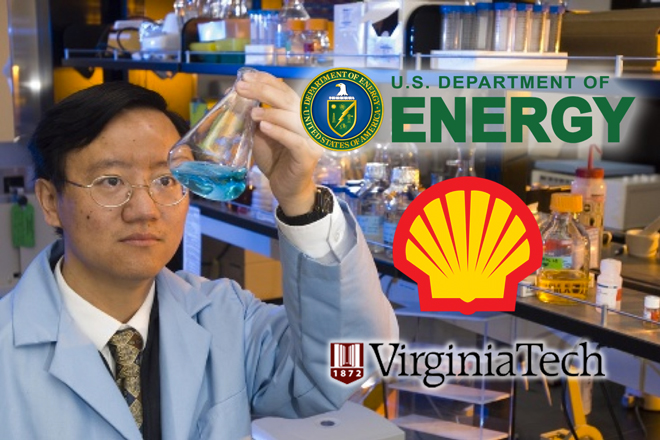Hydrogen fuel has long been seen as a zero-emission alternative to burning fossil fuels. Despite automakers and other innovators advancing hydrogen fuel cell technology, hydrogen fuel production has been plagued with problems. Making hydrogen is expensive, and existing methods still give off green house gases. However, a revolutionary new process could bring about a powerful and sustainable hydrogen economy. With support from the U.S. Department of Energy and the Shell GameChanger Program, a team of Virginia Tech researchers have discovered an efficient way to extract large quantities of hydrogen from any plant source. Led by Y.H. Percival Zhang (pictured above), an associate professor of biological systems engineering, these scientists have developed a blend of enzymes capable of utilizing xylose, the most abundant simple plant sugar. The energy stored in xylose breaks apart water molecules into highly pure hydrogen and oxygen. While other hydrogen processes suffer an energy penalty, this new model actually yields more energy than is required to produce the fuel. That is a game-changing paradigm shift.
“The potential for profit and environmental benefits are why so many automobile, oil, and energy companies are working on hydrogen fuel cell vehicles as the transportation of the future,” Zhang said. “Many people believe we will enter the hydrogen economy soon, with a market capacity of at least $1 trillion in the United States alone.”
This is an exciting example of research & development cooperation among academic institutions, government agencies, and private industry. Support for this current research comes from the Department of Biological Systems Engineering at Virginia Tech. Additional resources were contributed by the Shell GameChanger Program, the Virginia Tech College of Agriculture and Life Sciences’ Biodesign and Bioprocessing Research Center, and the U.S. Department of Energy BioEnergy Science Center, along with the Division of Chemical Sciences, Geosciences and Biosciences, Office of Basic Energy Sciences of the Department of Energy.
Related Links:

